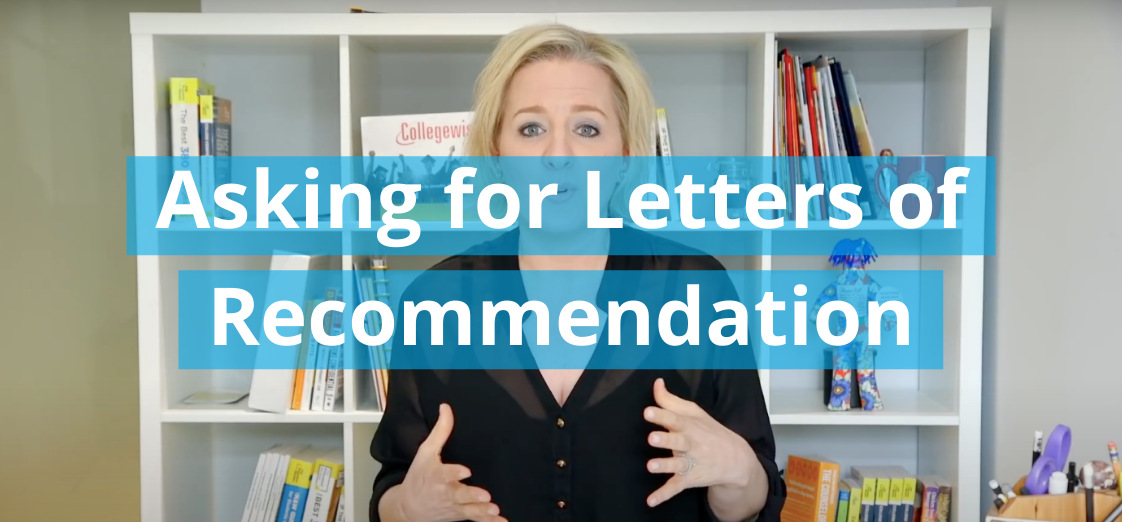What is demonstrated interest and why do we have it?
People like to talk about applying to college as if it’s like dating. You find someone you like (a college), and you send them a note that says, “Do you like me? Check Y or N” (an application), and then you have to wait. Ah, but in this analogy, you haven’t sent the “do you like me?” note to just one person (AKA college). Hopefully, you’ve thoughtfully built a list of schools that will maximize the number of “Y”s checked off on the return letters. Now, in sending you an offer of admission (checking “Y” on your note), the schools are quite literally asking, “Do you like me back?” Except this time, if you check “Y,” you will also need to send them an $800 enrollment deposit and make tuition payments. So, it’s like really expensive dating!
What I’m describing here is called the “enrollment funnel,” and it’s the defining challenge for college admissions offices. How do you communicate an impactful message about your college to millions of college-going students each year in a way that resonates with them so well that they actually apply? And how do you then admit and eventually enroll exactly the right number of students? Enroll too few, you miss budget targets for tuition revenue. Enroll too many, you’re housing freshmen at the nearby hotel instead of dorms. Yes, this is all about money.
At selective colleges and universities, offers of admission can be pretty rare things, and these colleges want to make sure that their offers go to students who really want them. An important factor in enrollment management (the job of the deans and directors of admission) is “yield,” which is the percentage of students who accept an offer of admission and actually show up in the fall. There are some schools that are more concerned about their yield than others. America’s most highly selective schools’ yield rates are in the 70+% range (schools whose names rhyme with “Blanferd” and “Shmail”), while the average across all colleges and universities is closer to 26%. The lower the yield rate, the more offers of admission you need to make in order to fill your freshman class with the right number of students. You can see a great visualization of the change over time in admit rates and yield here.
So, the notion of “demonstrated interest” enters the conversation as a function of yield. The schools with the highest yield—the most desirable schools in our country—likely don’t take a demonstration of interest into account because, well, they’re inherently interesting! They’re highly coveted as it is, and everyone wants in. To indicate that they are interested in your interest, as it were, would be to encourage some very unhealthy behavior. Imagine BTS giving all their fans the option to stop by real quick one by one and say hi after the concert. That would not be an orderly or advisable process!
Campbell’s Law states, “The more any quantitative social indicator is used for social decision-making, the more subject it will be to corruption pressures and the more apt it will be to distort and corrupt the social processes it is intended to monitor." So what does this have to do with demonstrated interest? Well, the cat is out of the bag now, and you’re reading a blog post about demonstrated interest. You can—and are even encouraged to—ask colleges directly whether they consider demonstrated interest in their admissions criteria. If they say “yes,” then how do you engage in a demonstration of interest without giving into “corruption pressures”? In other words, how do you do the thing authentically? How do you tell them you like them without acting like a weirdo stalker?
How/When/Where to Demonstrate Interest
Interactions with college admissions reps
The most common place to meet these intrepid souls is in your high school when they come to visit, or at college fairs in your area. Not all colleges will send representatives to your school or area, so if you don’t see them listed, give the admissions office a ring (on the phone!) and ask if anyone is scheduled to swing through your town.
You can usually figure out who your designated representative is by Googling “[name of college] admissions staff.” And you know what? They may even list their contact information right there. But a word of caution from Uncle Ben Parker: “With great power comes great responsibility.” I will never forget the student who took bi-weekly opportunities to send me a digest of all the ways he was a newer, better fit for Rochester this week than he was two weeks ago. And he did this for a matter of months. “Demonstrate interest” doesn’t mean “Petition your way to being accepted.”
Some colleges provide interviews; others do not. If they offer the opportunity, take it. It is presumed that a student who is shy or introverted is a “bad interviewer” and perhaps should not interview as a result. To this I toss my head back, laugh, and loudly proclaim, “Balderdash!” Shy people have equally fascinating things to say as un-shy people, they just say it...shyly? Colleges are looking for all types, introverts as well as extroverts. You do you!
Use the application itself
The bottom line is that colleges everywhere—whether they “track” demonstrated interest or not—generally want to understand why you are at least interested enough in them to submit an application. To this end, it’s better and more productive to talk about “demonstrated interest” in terms of “demonstrated fit.” The same word though, “demonstrated,” appears in both. Going to college is oftentimes a student’s first foray into the scary and awkward-feeling adult world of self-advocacy. It is scary, it is awkward, and yet, it must be done.
The best place to demonstrate your fit is in your response to the supplemental essay questions colleges ask you to respond to. You need to have a really good answer to the question, “Why do you want to go here?” that is more than “you are beautiful and famous.” To return to the dating metaphor, you need to tell that school why they’re more than just a pretty face. What do you know about the parts behind the pretty face? How does this jive with your learning style? What kinds of people are there, and how do you see yourself fitting in amongst that crew? What does this place have that no one else has? Tulane knows that New Orleans has jazz and crawfish. NYU knows that New York City is the “melting pot of the world.” USC knows how great its football team is (OK, that last one might need a little more time to mature into truth, but you get what I mean). Surprise them! Show them you’re paying attention! Give them something specific and interesting (and ideally a match with something specific and interesting about yourself).
Early Decision
Of course, the loudest and most dramatic proclamation of your heretofore unrequited love for a college is the act of submitting an application under the “Early Decision” plan. Applying ED is almost virtually identical to applying in any other fashion except for a few big “buts”: You apply earlier than other deadlines (imagine that!), and you submit your application along with a document signed by you (the student), your parent, and your school counselor that says, “If I am admitted under the terms of this plan, then I will withdraw any pending applications I have at other colleges and enroll at this school.” Not all colleges offer this plan, but for those that do, they like this because they know that if they say yes to you, they’ve got you sitting in their classes next fall (harken back to the “enrollment funnel” and “yield” conversation above), which brings them peace of mind. You like this because hey, it’s over! The holidays came early and you’re in, and you know where you’re going and all your presents can be [college] socks, [college] shirts and [college] stuffed slugs (definitely a real thing).
The hard part about applying ED is that in addition to accepting their offer of admission, you also have to accept whatever amount of financial assistance they do—or don’t—give you. Every family needs to be absolutely certain they can afford the experience at a school to which they are considering applying Early Decision. We can’t stress this enough.
FAQs
What if I ask an admissions rep if they track demonstrated interest, and they say that they DON’T track demonstrated interest?
Say, “Thank you very much for your time!” Walk away, submit an application, and revel in the positive feeling of having done The Right Thing.
When:
- You’ve been told as much by the college admissions counselor.
- You’ve been told as much by a trusted adult you’ve confided in about your activities related to applying to college.
- You accidentally call your mom “Miss” because that’s how you’ve been overly politely addressing the admissions rep you’ve been emailing at the school where you have been demonstrating TOO MUCH INTEREST!
- Yes, it’s true that colleges can track this. But think about it: Does a student opening emails and clicking on stuff likely correlate strongly with enrolling in the college that is sending them emails? No. That said, if you’re interested in the college, open the emails because they share some pretty important stuff that you don’t want to miss.
In sum: Be yourself
I don’t know about you, but as someone who worked as an admissions officer and now works advising kids, I find “be yourself” to be one of the more frustrating pieces of advice to give, mainly because it feels like it’s super-frustrating advice to receive. The struggle comes in wondering if the self that you are isn’t the self that they want. “What if they don’t like me as I am? I need to be the kind of person they DO like!” The truth is that this concern belongs in a very crowded category of “Things You Can Do Nothing About in the Admissions Process.” You really don’t know what kind of person they like. If you try to stretch into a self that isn’t yours, it’ll feel weird, it won’t translate well in writing or interviews, and if it doesn’t work, you’ll kick yourself for employing a faulty strategy.
You may not think that your life is interesting, but I’m here to say that it is because you’re the ONLY one living that life! That in itself is what differentiates you from every other applicant, and isn’t that what everyone’s trying to do? Differentiate themselves in the admissions process? So be honest, be forthright, don’t be a stalker, and take some risks in sharing pieces of yourself with the strangers in the admissions office, and you might just get a note in the mail with a big ol’ checkmark in the “Y” box.
About Us: With more than twenty years of experience, Collegewise counselors and tutors are at the forefront of the ever-evolving admissions landscape. Our work has always centered on you: the student. And just like we’ve always done, we look for ways for you to be your best self - whether it’s in the classroom, in your applications or in the right-fit college environment. Our range of tools include counseling, test prep, academic tutoring, and essay management, all with the support of our proprietary platform, leading to a 4x higher than average admissions rates.



.png?width=600&height=200&name=Blog%20CTAs%20(7).png)



